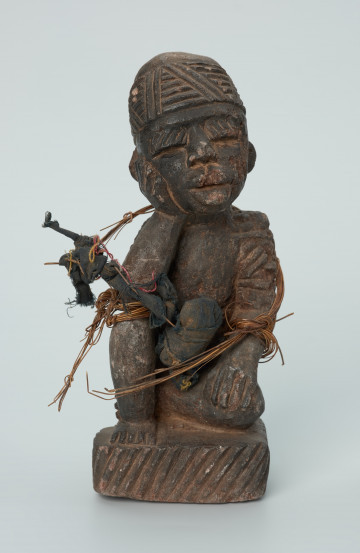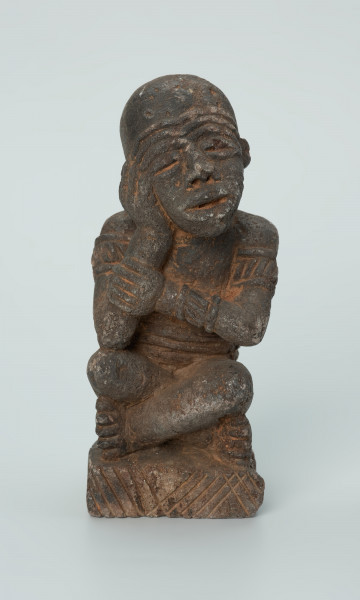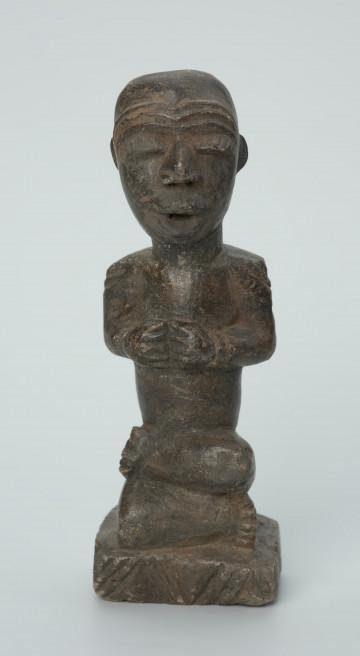
Ancestor worship figure
około 1901 — 2000
National Museum in Szczecin
Part of the collection: Mintadi figurines
The word mintadi (singular ntadi) means guardians, custodians in the Kikongo language. Mintadi are associated with the traditions and culture of the Kingdom of Congo established in the lower reaches of the Congo River (today's territories of northern Angola, the Republic of Congo, western part of the Democratic Republic of Congo), which reached its peak of development in the 15th-16th centuries. It was converted into a Portuguese colony in 1914. Among the most popular mintadi figures are depictions of sitting men with their legs crossed, heads supported by their hands and eyes partially closed and thoughtful. These representations are called fumani - thinkers. The presented sculpture of a thinker was made of soft stone, most probably soapstone. In the 16th-19th centuries, mintadi were also carved in chlorite slate, i.e., a soft stone, silky and smooth to the touch, quarried on the Noki massif's south-eastern slope. Matadi dia valua, or carved stones, were first mentioned in the correspondence of the Congolese ruler, Afonso I, with the King of Portugal. In October 1514, Afonso I communicated to the King of Portugal the content of a speech he had addressed to his chiefs: 'As for the stones and the tree you worship, Our Lord has given them - stones for building houses and wood for fuel'. Afonso I has been described by Africanists as the most Christian king of the Congolese kingdom. Since the 19th century, the style of mintadi has undergone some transformations, but their function has been preserved. Their function is to mediate between the world of ancestors and living descendants, ensure continuity and permanence of power, establish consensus and protect the community. Most mintadi are surrogates for a chief that is alive but temporarily absent and effigies of deceased rulers.
Katarzyna Findlik-Gawron
Author / creator
Dimensions
cały obiekt: height: 16,2 cm, width: 5,8 cm
Object type
sculpture
Creation time / dating
Creation / finding place
Identification number
Location / status

około 1901 — 2000
National Museum in Szczecin

około 1901 — 2000
National Museum in Szczecin

około 1901 — 2000
National Museum in Szczecin
DISCOVER this TOPIC
Castle Museum in Łańcut
DISCOVER this PATH
Educational path